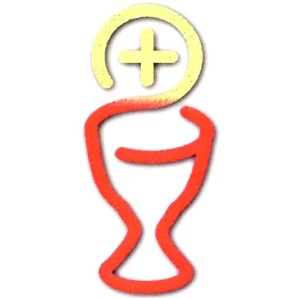The Oxford English Dictionary defines conscience as, “A person’s moral sense of right and wrong, viewed as acting as a guide to one’s behaviour”. In the context of the Christian faith, conscience is the voice of the Holy Spirit within us, however, the challenge for many in the modern day is whether we choose to accept this gift that God gives us.
The Church teaches us as Christians that our consciences can be formed in many and varied ways – from teachings in scripture, to prayer and the sacraments. However, as our world changes, our conscience is also formed through the experiences and the events that we see around us. Conscience is something that, while it is developed through scripture and our relationship with God, is something that all humans possess – therefore, it is a universal feature of all humanity.
The Old Testament does not make reference to the word ‘conscience,’ but rather the idea of ‘heart’. However, the concept was developed more fully in the New Testament by Paul, cf. Romans 2: 14-15 “They show that the requirements of the law are written on their hearts, their consciences also bearing witness.” Here, Paul reminds us that whether a person has heard the message of the Gospel or not, they still have a sense of right and wrong, reinforcing the concept that conscience is something that all humans possess.
Aquinas argued that humans are inherently rational beings and this is what set us apart from other creatures. Aquinas also argued that humans follow a natural law which is an extension of the eternal law. All human reasoning follows from the principle that good is to be done and evil is to be avoided. However, this basic principle can be distorted by a person’s education, experiences and external influences. Moreover, Aquinas also wrote of revealed law – which comes to use through God’s gifts in our lives – one clear example of this are the Ten Commandments and Jesus’ sacrifice for human-kind.
Cardinal Newman spoke of the conscience as being much like a messenger. This indicates that conscience is something that does not have authority of its own, but has an inherent authority as something that is given from God. Therefore, if conscience is like a message from God – while we do have the free-will to ignore it, we do not have the ability to change or alter the message. If we try to do so, this is one way in which our consciences can become ill-formed.
In the world at the moment, we face many different influences which affect ways in which we are supposed to act, think and behave. If we consider that pressure that we are under to achieve transient successes in their lives, it is very easy to stop listening to the voice of our conscience. However, the world that we live in is one which demands personal perfection and often this seems to be at the expense of others. Therefore, to my mind, it seems that when we do make mistakes and decisions which do not follow the voice of our conscience, it is not always that we are ignoring our conscience, but rather that it is becoming harder to discern right from wrong.
Conscience is vital to Christian decision making because we believe and know that we have been given this Truth from God. I believe that all people do have the inherent ability to distinguish between right and wrong through the natural law that we all must try to follow in accordance with our consciences. However, we should also remember that the conscience is a flexible concept which we try to apply to concrete situations. Ultimately, as humans, we are flawed and we make mistakes, however, as long as we try to follow our consciences, we try to follow Jesus’ example.
Tom D
